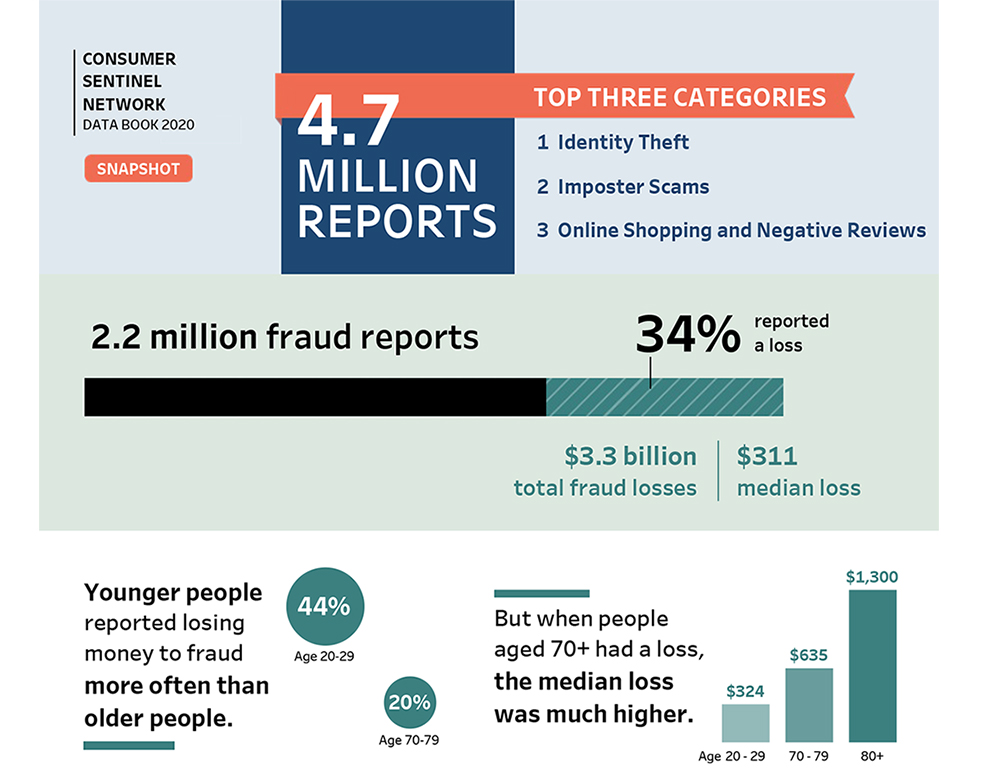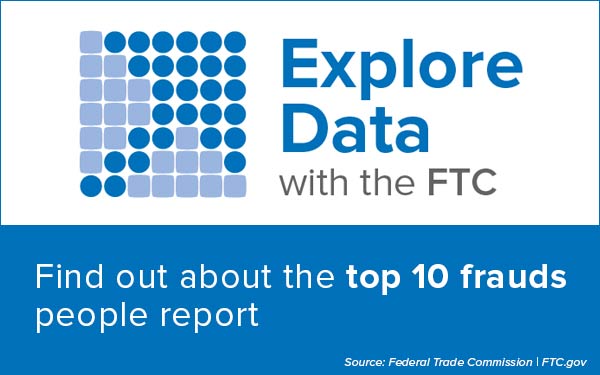The FTC takes in reports from consumers about problems they experience in the marketplace. On October 22, 2020, the FTC launched ReportFraud.ftc.gov, a new site for people to report fraud and other illegal business practices. As always, reports from consumers are stored in the Consumer Sentinel Network (Sentinel), a secure online database available only to law enforcement. While the FTC does not intervene in individual consumer disputes, its law enforcement partners – whether they are down the street, across the nation, or around the world – can use information in the database to spot trends, identify questionable business practices and targets, and enforce the law.

Click image to see interactive data dashboard
Since 1997, Sentinel has collected tens of millions of consumer reports about fraud, identity theft, and other consumer protection topics. During 2020, Sentinel received over 4.7 million consumer reports, which the FTC has sorted into 29 top categories. The 2020 Consumer Sentinel Network Data Book (Sentinel Data Book) has aggregated information about what consumers told us last year on the full range of fraud, identity theft and other consumer protection topics. The Consumer Sentinel data is also available online in an interactive format at ftc.gov/exploredata, with updates provided quarterly. The Sentinel Data Book is based on unverified reports filed by consumers. The data is not based on a consumer survey. Sentinel has a five-year data retention policy, with reports older than five years purged biannually.
In addition to taking consumer reports directly from people who call the FTC’s call center or report online, Sentinel also includes reports filed with other federal, state, local, and international law enforcement agencies, as well as other organizations, like the Better Business Bureau and Publishers Clearing House.
-
Interactive data dashboards, with charts, data, and maps (Tableau Public)
-
Consumer Sentinel Network Data Book 2020 (PDF, 11.6 MB)
- Data Files (Zip archive, CSV files; 110 KB)
In 2020, the FTC was pleased to welcome the data contributions of the FBI’s Internet Crime Complaint Center, the Florida Department of Agriculture and Consumer Services, and the Connecticut Department of Consumer Protection. Twenty-five states now contribute to the Consumer Sentinel Network. A full listing of data contributors is available in Appendices A3 and A4. Non-government organizations that contribute reports do not have access to Sentinel reports, as access is limited to law enforcement agencies.
For more information about the Consumer Sentinel Network, visit www.FTC.gov/Sentinel. Law enforcement personnel may join Sentinel at Register.ConsumerSentinel.gov.

